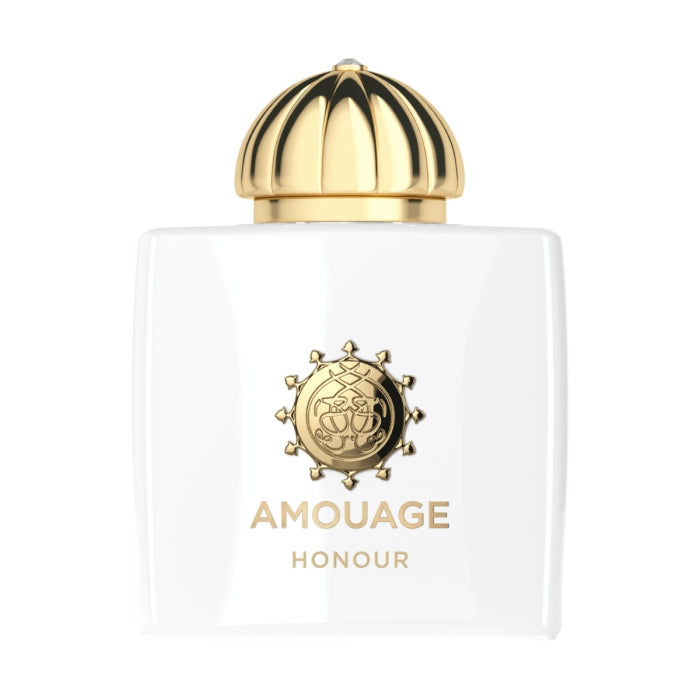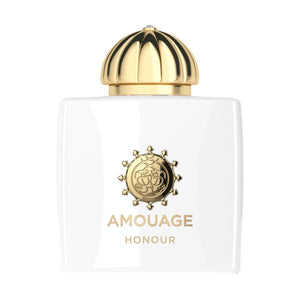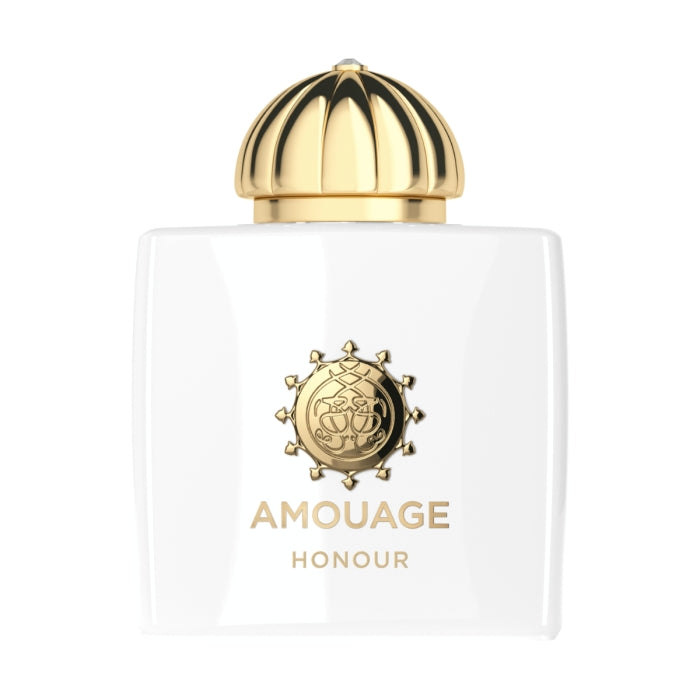‘Honour Woman’ tells the tragic love story of Madame Butterfly from the opera of the same name by Giacomo Puccini. A bouquet of white flowers reflects her different facets. Tuberose represents danger, jasmine represents loyalty, gardenia represents secret love, lily of the valley represents purity of heart and white carnation represents innocence. A base note of incense, ambergris and opoponax symbolises her tragic end.
The bottle
The bottle is made of shiny white crystal glass. White symbolises mourning, innocence and eternity. The cap is gold-plated and adorned with a white opal Swarovski crystal. The outer packaging features shadowy white butterfly wings on a matt grey background, alluding to Madame Butterfly.
Madame Butterfly is an Italian opera by Giacomo Puccini.
American naval officer Pinkerton wants to buy a house in the Japanese city of Nagasaki. He has fallen in love with 15-year-old Cio-Cio-San, with whom he wants to spend a wonderful time during his stay in Japan. The two celebrate a wedding ceremony according to Japanese custom. For the American, his liaison with Cio-Cio-San is an entertaining and exotic affair. The young geisha, however, sees it as the beginning of a serious relationship. The newlyweds spend a few happy days together until Pinkerton has to leave again. His ship takes him back to the USA.
The Far Eastern romance has consequences for Cio-Cio-San. She becomes pregnant and expects Pinkerton's child. She raises their son with all her love and tells the growing child many stories about his father, who will surely return soon. But years pass before Pinkerton's ship appears on the horizon. Cio-Cio-San is beside herself with joy at the reunion. But Pinkerton has not returned to Japan alone. He has brought his American wife with him. Cio-Cio-San learns of Pinkerton's double life and realises that he only ever saw her as a woman of the night. She feels dishonoured and humiliated and commits harakiri with her father's dagger. The inscription on her father's dagger reads: ‘Death with honour when one can no longer live in honour.’




